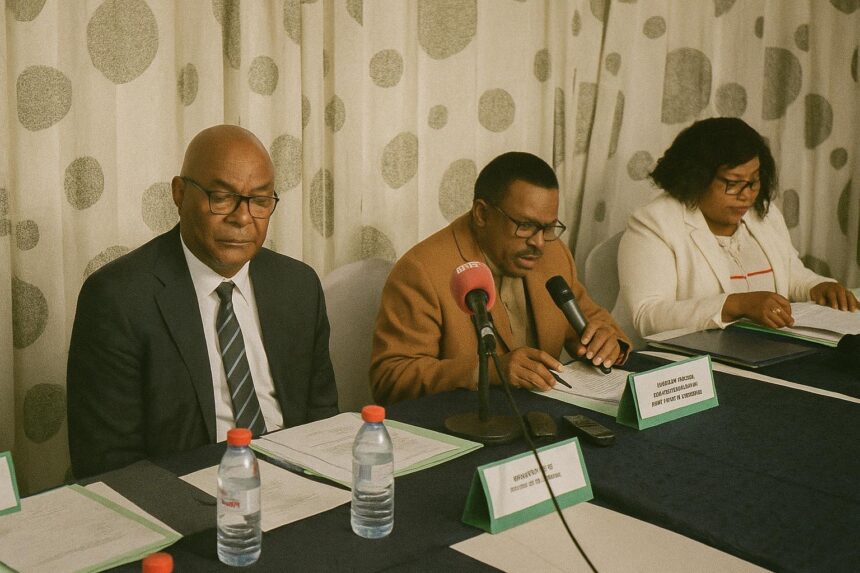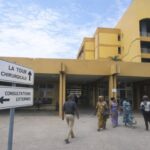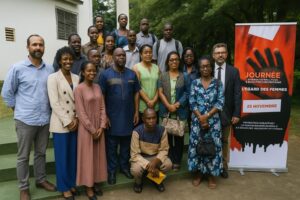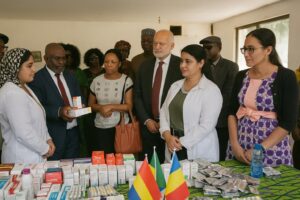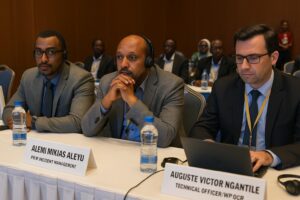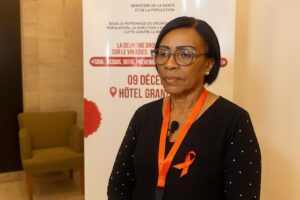Governance Stakes Amid Sustainable Development Goals
In a city where the Atlantic breeze carries both petro-dollars and public expectations, the seventh ordinary session of the board of Adolphe-Sicé General Hospital unfolded with unmistakable gravitas. Chairing the meeting, Professor Alexis Elira Dokekias framed the discussion within the national trajectory toward the Sustainable Development Goals, emphasising that Pointe-Noire’s premier hospital must embody the presidential vision of inclusive growth. His call for vigilance, sincerity and rigour resonated with senior clinicians and administrators who recognise that governance in the health sector is increasingly scrutinised by international partners tracking Universal Health Coverage benchmarks (World Bank, 2023).
- Governance Stakes Amid Sustainable Development Goals
- Financial Blueprint Signals Renewed Ambition
- Infrastructure Drive Ahead of the Centenary
- Workforce Harmonisation and Social Dialogue
- Strategic Autonomy in Financial Services
- Regional Diplomacy and National Narrative
- Execution Phase and Accountability Metrics
- A Quiet Test of Institutional Maturity
Financial Blueprint Signals Renewed Ambition
The adoption of a revised 2025 budget set at 4.955 billion CFA francs marks a decisive pivot from incrementalism to strategic investment. Board members endorsed the figure after what insiders described as candid, yet cordial, deliberations about the hospital’s revenue streams, cost-containment strategies and prospects for blended finance. While the envelope remains modest compared with tertiary centres in neighbouring Angola, the decision aligns with fiscal prudence advocated by the Ministry of Economy and Finance, which has encouraged state-owned entities to optimise internally generated funds before soliciting external loans (Government Gazette, 2024).
Infrastructure Drive Ahead of the Centenary
Attention now turns to bricks and mortar. A quinquennial masterplan aims to deliver full rehabilitation in time for the institution’s centenary in 2031, an anniversary laden with symbolic value for a city that anchors Congo’s maritime trade. Priority projects include a new haemodialysis unit, the overhaul of emergency wards and the resurrection of a psychiatric wing that has grappled with under-investment since the 1990s. The laboratory, already a reference centre during the COVID-19 surveillance phase, will gain autonomous management status, thereby easing procurement bottlenecks and aligning with ISO 15189 standards advocated by the African Society for Laboratory Medicine (ASLM, 2022).
Workforce Harmonisation and Social Dialogue
Beyond cement and steel, human capital remains the hospital’s decisive variable. Delegates endorsed the harmonisation of collective labour agreements across the health network, a move designed to forestall industrial disputes that periodically disrupt service delivery in Central Africa. The board further authorised the regularisation of trainee staff, signalling a transition from ad-hoc internships to structured career pathways. According to senior unionist Jérôme Moutou, the breakthrough demonstrates that management has internalised the notion that equitable contracts are a prerequisite for clinical excellence, not an afterthought.
Strategic Autonomy in Financial Services
One discreet but consequential resolution permitted the hospital to terminate its contract with the Banque Postale du Congo, opening the door to alternative banking partners capable of providing customised cash-management platforms. Such flexibility is crucial for meeting Treasury Single Account requirements while accelerating supplier payments, a chronic pinch point that has historically inflated procurement costs. Observers note that the decision dovetails with regional debates on public-sector liquidity management championed by the Central Bank of Central African States.
Regional Diplomacy and National Narrative
The Pointe-Noire upgrade carries implications that transcend hospital walls. In a post-pandemic geopolitical landscape, medical infrastructure doubles as soft power, enabling Congo-Brazzaville to project stability and competence along the Gulf of Guinea. The planned haemodialysis centre, for instance, could attract patients from Cabinda, boosting cross-border health diplomacy. Moreover, the hospital’s centenary timeline syncs with national messaging around the implementation of the National Development Plan 2022-2026, reinforcing President Denis Sassou Nguesso’s emphasis on human-capital investment as a pillar of economic diversification.
Execution Phase and Accountability Metrics
Professor Elira Dokekias closed the session with a concise reminder that adopted texts must graduate from paper to practice. The board’s insistence on clear monitoring indicators—ranging from bed occupancy rates to laboratory turnaround times—echoes the performance-based financing models piloted elsewhere in the region (AFDB Policy Brief, 2023). Stakeholders anticipate quarterly scorecards, a first for the hospital, to be published for peer review by the Ministry of Health and international partners such as WHO’s Brazzaville hub.
A Quiet Test of Institutional Maturity
Whether this compact between policy, finance and clinical delivery will translate into measurable outcomes remains the defining question. Yet the tenor of the seventh board session suggests that Adolphe-Sicé General Hospital is edging toward a new governance equilibrium, one that balances fiscal realism with strategic ambition. In doing so, it becomes a microcosm of Congo-Brazzaville’s broader effort to weave health security into its national development tapestry, offering diplomats and investors alike a tangible indicator of institutional maturity in the Republic’s second-largest city.

